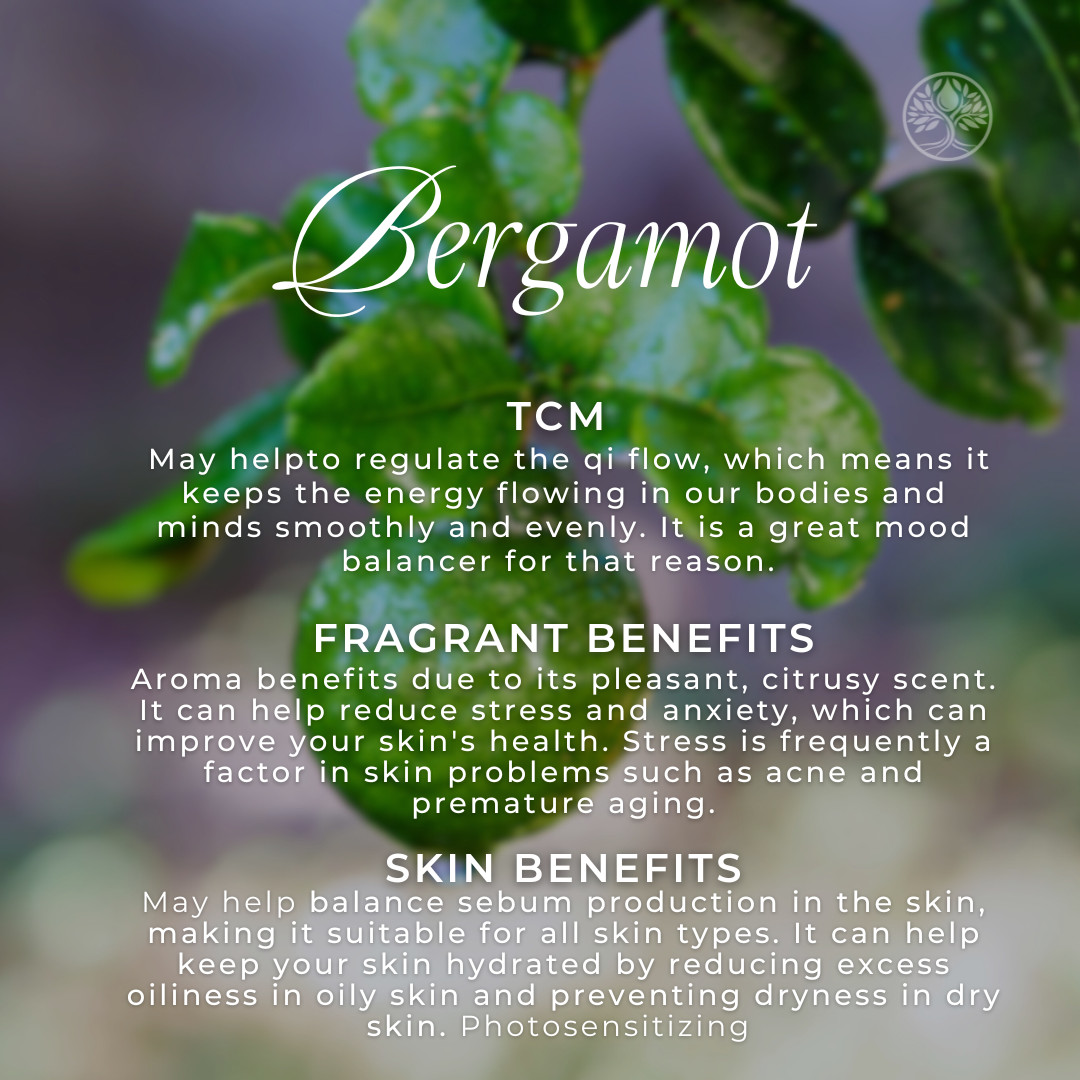
Bergamot Essential Oil
Citrus aurantium bergamia
If you’ve ever enjoyed a cup of Earl Grey tea, you’ve enjoyed the lovely scent and flavor of bergamot. One of the most popular teas in the world, Earl Grey owes its unique fragrance to the oil, which is also used in perfumes and cosmetics.
Extracted from the rind of the bergamot orange (Citrus bergamia), bergamot has a reputation for being calming and soothing, and for helping to heal wounds and sores on the skin. Frequently used in aromatherapy and in massage therapy, it’s said to help reduce sensations of pain, decrease nervous tension, and even help you sleep.
The chemical composition of bergamot essential oil is quite complex and varies depending on factors such as the type of bergamot fruit, the time of harvest, and the extraction method used. The main chemical components of bergamot essential oil include monoterpenes such as limonene, linalool, and alpha-pinene, as well as sesquiterpenes, such as beta-bisabolene and alpha-humulene. These compounds are responsible for the oil's characteristic citrusy, floral, and spicy aroma, as well as its potential health benefits.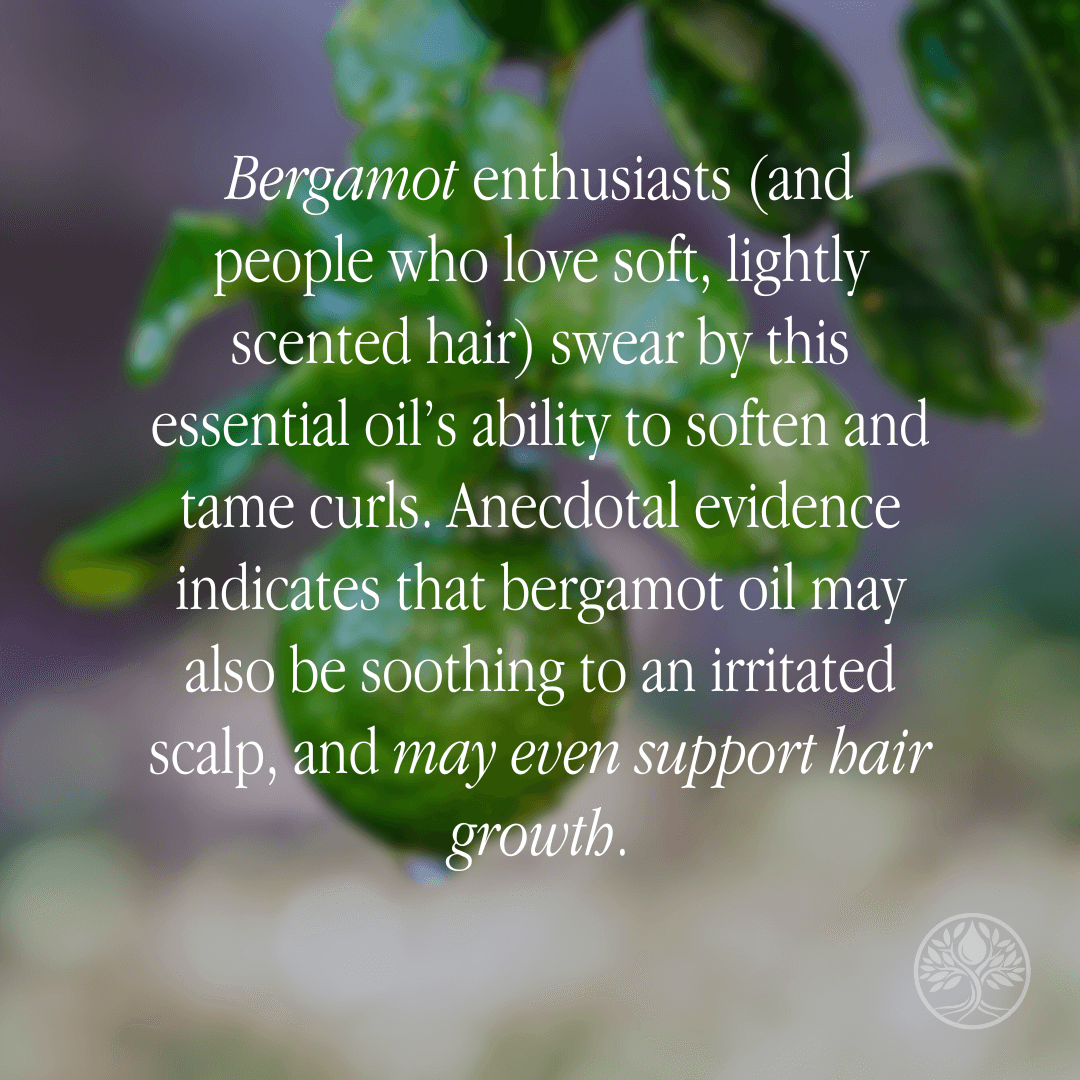

It may be hard to believe that oil from what is essentially an orange could do that, but this is a unique fruit. Though called an orange, it’s not the same as the oranges we’re used to. It’s about the same size, but has a more yellowish color, and is shaped more like a pear. It’s named after a town in Lombardy, Italy — “Bergamum” — and comes from a small evergreen tree that blossoms in the winter.
In addition to being enjoyed as tea, many different cultures used bergamot for medicinal purposes. In traditional Chinese medicine, bergamot oil was used to help the digestive system, relieve muscle pain, rejuvenate skin and prevent bacterial growth (7). In ancient India, Ayurvedic doctors also used bergamot oil to promote skin health and to help the digestive system. The ancient Indians also used bergamot as an antiseptic and antibacterial and would use bergamot oil to help fevers. It is believed that bergamot oil was also used in Ayurvedic medicine to treat psychological disorders such as anxiety and depression (10).
In ancient Persia and Greece, people would burn bergamot in incense burners to help treat respiratory issues (7). After the rise of the Ottoman Empire, the practice of using bergamot to treat respiratory issues was picked up by the Turks as well. The Italians often ingested bergamot juice to get rid of worms, treat malaria and help reduce fevers. Additionally, Italians would use bergamot oil as an antiseptic to treat wounds and prevent infection (8).
In North America, Native American tribes drank tea made of bergamot herb for its beneficial effects and pleasant taste. As tea, they used bergamot to treat mouth or throat infections, gingivitis and gastrointestinal issues. Interestingly, although bergamot herb is entirely different than citrus bergamot, both plants have been used for antiseptic properties (4). Many Native American tribes also recognised that the bergamot herb could be used to treat infections or open wounds, so they would often make a paste using bergamot in order to treat injuries. Along with this, some tribes would use it to keep themselves from getting mouth infections, so bergamot herb was one of the first materials to be used as mouthwash (4).
As you can see, in this kaleidoscope world of essential oils, bergamot is a star that often gets overlooked. It has always been important for its role in perfumery, yet this citrus-scented powerhouse is often overlooked, even for just it’s extensive array of benefits to the skin. Make this a staple in your skincare formulas, and value it not just for its vibrant aroma, but for its remarkable ability to beautify and protect the skin.
From stimulating cell renewal to fostering a healthy glow, bergamot oil is packed with compounds that can have a profound impact on skin health and other body systems, so make sure to have a few bottles on hand!
This is a citrus essential oil, so remember that this oil may cause photo-sensitivity. Avoid direct sunlight or UV rays for up to 12 hours after applying product topically. Does not cause photosensitivity when taken internally.
Want a little deeper dive into Bergamot? Check out this article:
Click to Purchase here
Looking for more?? Checkout these sources!
Research:
https://www.ejgm.co.uk/download/investigation-of-anti-inflammatory-activity-of-bergamot-oil-6622.pdf


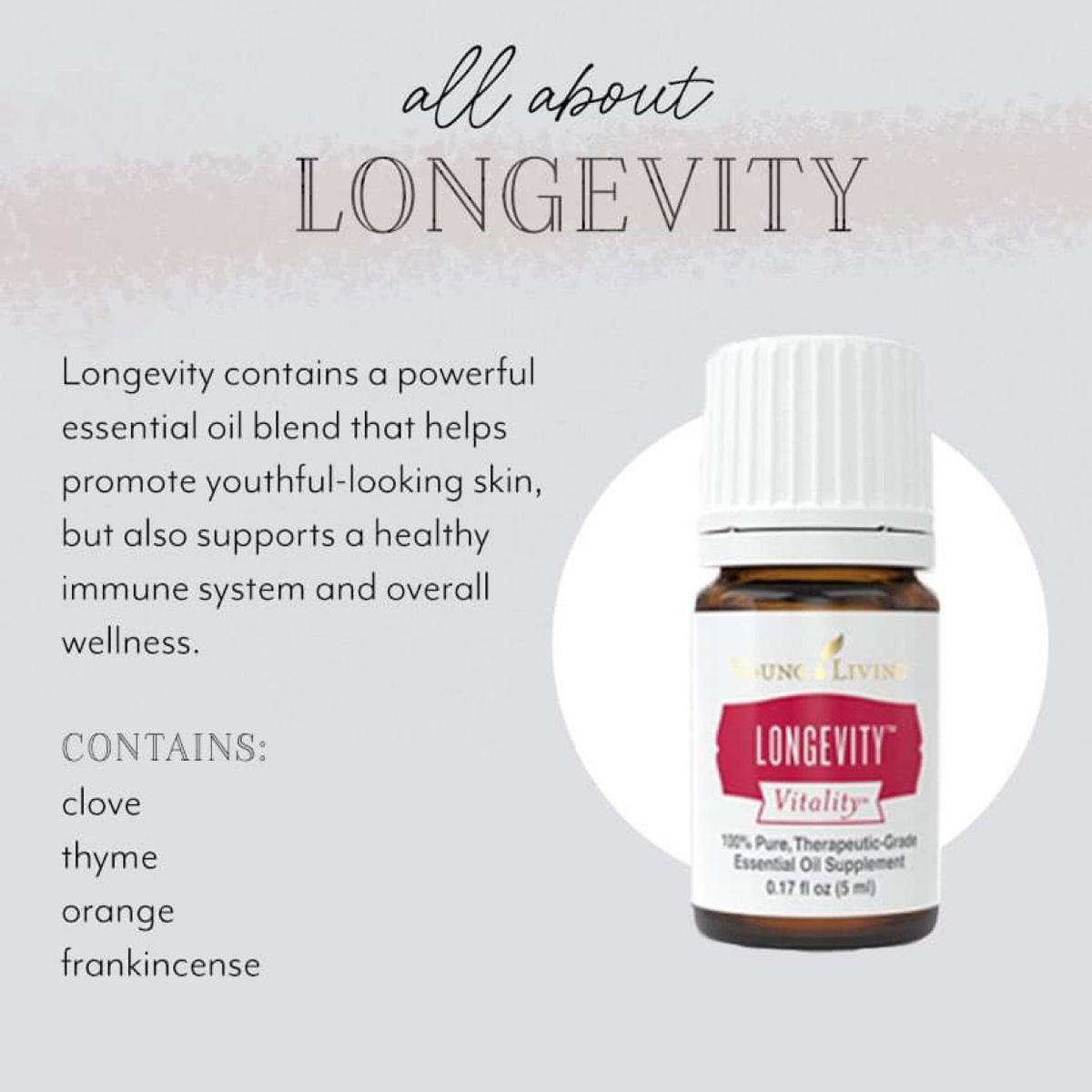

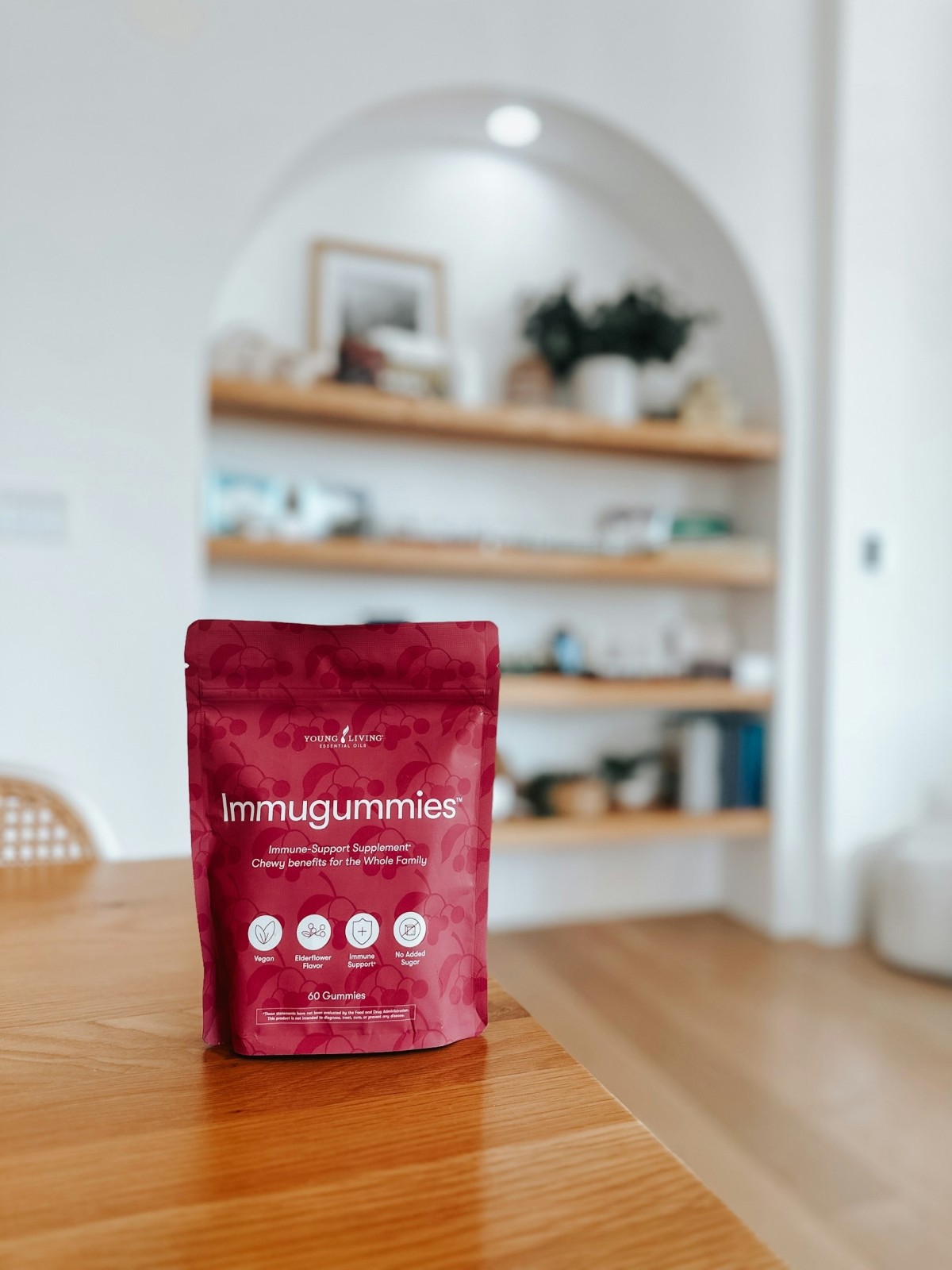
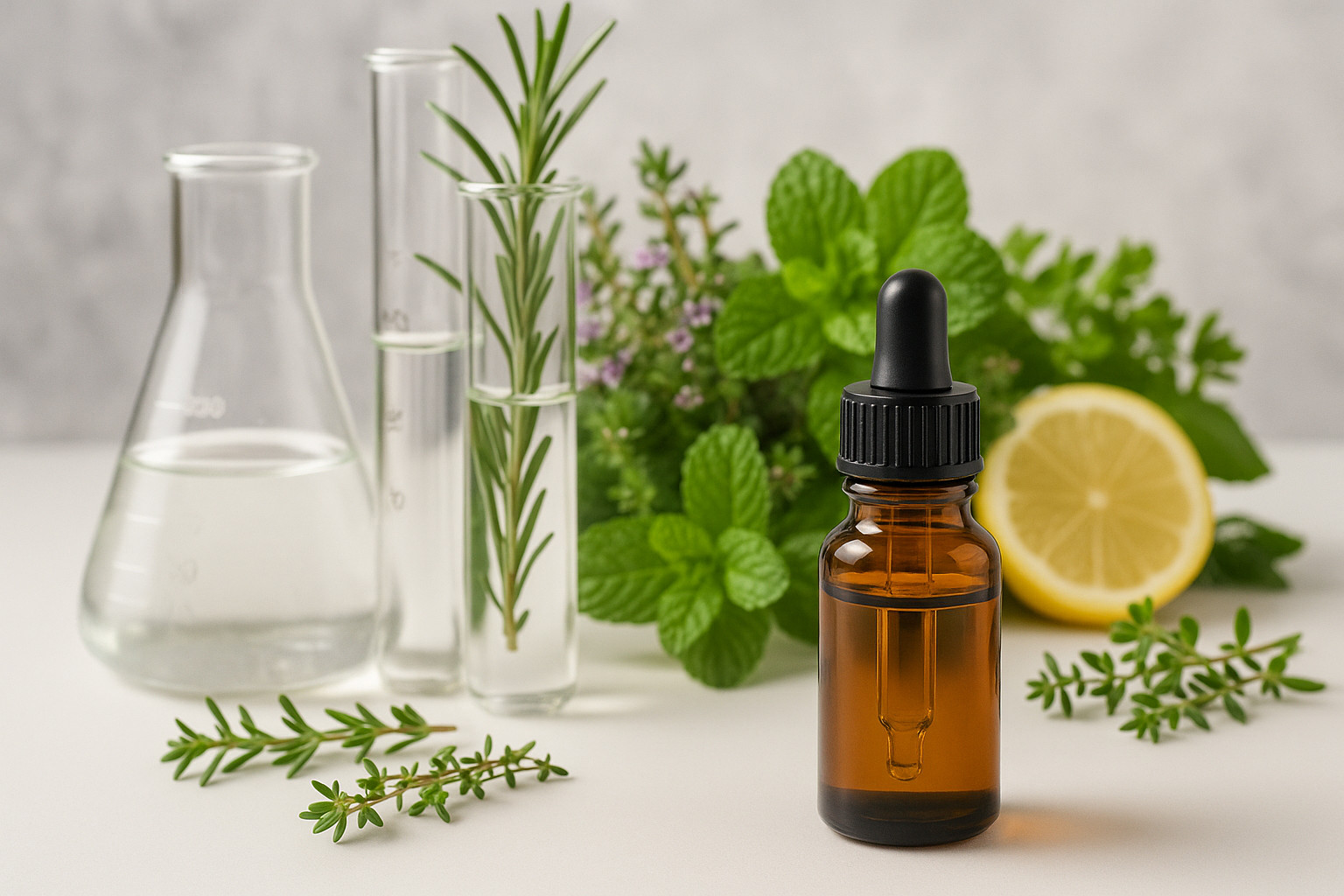




0 Comments